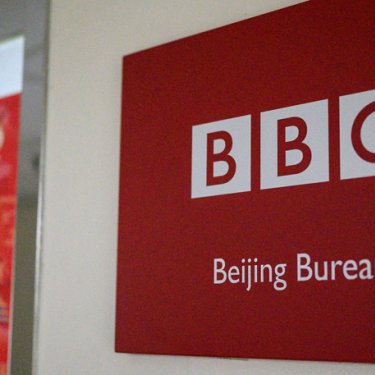RSF condemns BBC broadcast ban as example of Chinese government reprisal

Reporters Without Borders (RSF) condemns the Chinese broadcast media regulator’s decision to ban BBC World News, the BBC’s international TV news channel. The ban has all the hallmarks of Chinese government reprisal for the BBC’s reporting, RSF said.
Announcing the ban yesterday, China’s National Radio and Television Administration (NRTA) said the China-related reports broadcast by BBC World News had “seriously violated” Chinese regulations.
The Chinese ban came one week after Ofcom, the British broadcast media regulator, announced that it had withdrawn the licence for China Global Television Network (CGTN) to broadcast in the United Kingdom because it lacked editorial independence.
Ofcom stated that, after an investigation, it had concluded that CGTN was not controlled by the company to which the licence was issued and that, as official documents showed, it had been under the Chinese Communist Party’s direct control since 2018.
Yesterday’s NRTA statement brazenly claimed that the BBC had “infringed the principles of truthfulness and impartiality in journalism.” The BBC’s recent China reporting included a documentary entitled “54 days” in late January about a Chinese government cover-up during the initial days of the Covid-19 pandemic. On 2 February, it carried a report about the alleged rape and torture of Uighur women in internment camps in the western region of Xinjiang.
“The Chinese broadcast regulator’s completely false claim that its decision was based on journalistic ethics borders on the grotesque,” said Daniel Bastard, the head of RSF’s Asia-Pacific Desk. “No one is fooled. What we’re seeing here are two radically different visions of journalism. On the one hand, Ofcom and the BBC are completely independent of the British government. On the other, the NRTA is a regulator that is directly attached to the Chinese government and CGTN merely pumps out propaganda from the CCP, which tolerates no journalistic freedom.”
The NRTA’s posturing is largely symbolic because the ban will have a very limited impact as the BBC World News was only available in a few international hotels and was never allowed into Chinese homes.
Meanwhile, Hong Kong’s public broadcaster, Radio Television Hong Kong (RTHK), today announced that its radio stations would stop relaying BBC World Service radio programmes. But the impact of this decision will also be limited as these programmes had been restricted to a few night-time slots since 2017.
In 2019, RSF published an investigative report entitled "China's Pursuit of a New World Media Order", which highlights the strategy deployed by the Chinese state to impose its model of information control globally. These strategies include: modernising its international TV broadcasting, buying extensive amounts of advertising in international media, infiltrating foreign media, and employing tactics of blackmail, intimidation and harassment on a massive scale.
China has long been near the bottom RSF's World Press Freedom Index and is ranked 177th of out of 180 countries in the 2020 Index.



